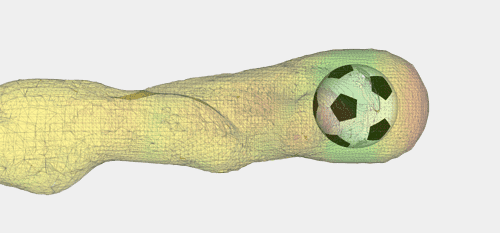Rescale Attends Largest Oil and Gas Technical Conference

Last month Rescale attended the Society of Petroleum Engineers’ (SPE) Annual Technical Conference and Exhibition (ATCE), the largest technical conference in the field of oil and gas exploration and production (E&P). This year it was held in New Orleans, LA from September 30th through October 2nd.
The SPE ATCE encompasses all technological aspects of oil and gas production, from drill bits, explosives, filtration units, and mobile platforms, to software, sensors and data processing. The full range of the E&P process involves computing technology, including planning, seismic acquisition and processing, reservoir modeling and management, well modeling, flow modeling, and integrated asset modeling, among others.
A select few of the E&P applications are very data heavy (seismic acquisition and processing, micro-seismic processing, etc.), and some require high-performance computing (HPC) clusters (e.g., reservoir modeling and simulation) for timely number crunching.
There are numerous categories of applications where HPC can be useful in oil and gas, generally in the following categories:
Engineering: Finite element analysis (FEA) is used in designing and testing mechanical components (such as drill bits), especially under the extreme conditions (pressure and temperature) of wells. Computational fluid dynamics (CFD) is used in modeling oil and gas flows in wells, transportation pipelines, as well as in processing plants. Computational intensity varies widely according to specific applications.
Seismic processing: The very large amount of data collected in seismic processing requires HPC clusters to process the data into a human-interpretable format. Many specialized seismic analysis packages exist for this purpose, and due to the nature of the application, processing is easy to parallelize to many compute cores.
Reservoir modeling: History matching, specifically, is a very compute intensive aspect of reservoir modeling that looks at well performance over time, including predicting future performance.
Meteorology: The oil and gas industry is interested in weather patterns as it relates to the protection and safety of its assets and personnel. The industry has funded some of the best weather models in existence. Weather pattern modeling is very computationally intensive, which is further exacerbated by the time sensitive nature of the processing. A model that predicts five days out cannot take five weeks to compute.
The general feeling among software vendors is that HPC is moving to the cloud, as many customers are moving away from maintaining their own in-house clusters. One vendor already offers access to their modeling software on an on-demand basis, fully in the cloud, via their own data center.
In-house HPC clusters are expensive to operate, and locks their internal users into certain hardware. Cloud-based hardware lets users choose the best configuration for their job on-demand. For instance, few in-house installations will have 240GB of RAM on a single node, or InfiniBand (high bandwidth, low latency) interconnect for distributed applications.
On-demand access to software will also bring innovation to licensing, since pay-per-use models make more sense for the cloud. Smaller players will see such pricing models as differentiation, which will move the entire space in that direction over time.
Rescale’s technology is a great complement to the on-demand licensing scheme, as Rescale already provides the pay-per-use HPC platform to accommodate the compute-heavy simulation software. Rescale is already in advanced discussions with simulation software vendors in the oil and gas industry, and will strive to set the trend for years to come.
To learn more about Rescale, please visit, www.rescale.com. To begin using Rescale for engineering and science simulations, please contact info@rescale.com.








